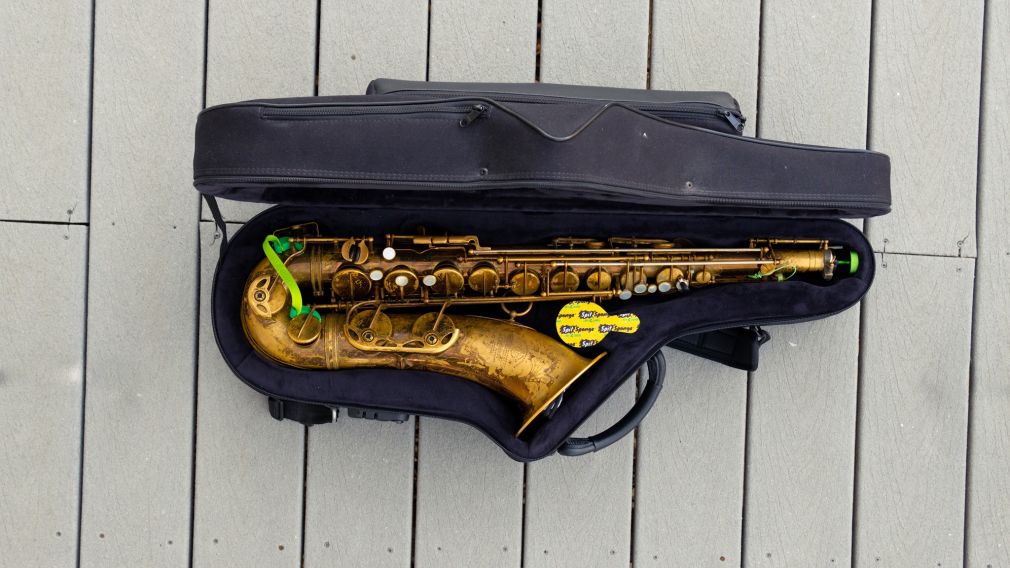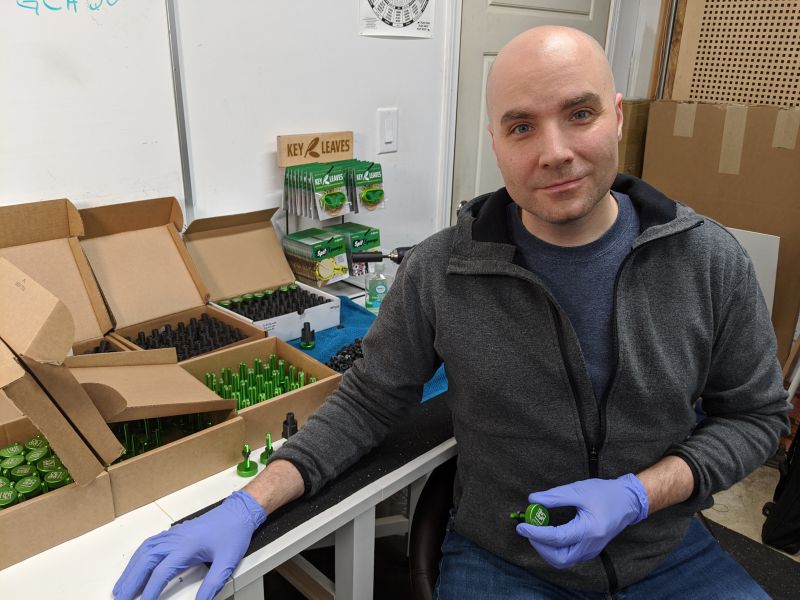Key Leaves Solves Sticky Situation

Key Leaves has been providing solutions to sticky key pads and key malfunctions on woodwind instruments since January 2018. The line of natural-care products leaves keys open so they can dry clean. Named a “Best in Show” product at the 2019 Show, the team at Key Leaves prides itself on “clean design, powerful results, and plain-spoken dealing.”
Founder Rulon Brown is a professional saxophonist and teacher who apprenticed in band instrument repair at his local music shop, Alaska Music & Sound. It was this combined experience that taught Brown what frustrated players the most, sticky keys.
We sat down with Brown to discuss the business and his keys to bringing a new product to market.

What was the inspiration for Key Leaves?
As a musician, there’s nothing worse than being in the middle of a performance and having your saxophone key stick shut. I wanted to help players trust their horns more, so I used my experience as a player, teacher, and technician to find the root cause of the problem: closed pads rotting on the tone holes after a playing. To alleviate musicians of their frustrations, I tried the many folk fixes and products out there that use chemicals, powders, and papers, but none of these prevented the disease. They just treated the symptoms.
I started sculpting devices to leave keys open to air dry after play and Key Leaves became my quiet side passion. I later met a developer of a wine label patent and his experience inspired me. The next week, I met with a patent attorney about my devices and one thing led to another. Later, I was on a road trip when I imagined a small spider with its legs straddling the tone hole of a saxophone, lifting the pad with its body. That inspired another patent for the tech for my Vent Vine™ (https://keyleaves.com/products/vent-vine) and soprano saxophone products (https://keyleaves.com/pages/sopranosax). My wife and I bootstrapped our way to market with homebrew products made in our garage and now we have expanded the Key Leaves product lines and have several other patents pending, including the tech behind our new GapCap (https://keyleaves.com/products/gapcap).
How would you describe the evolution of your production process?
Our production process varies depending on which of our four product lines we are making. When we started, we couldn’t convince factories to take us seriously. So, we paid for a 3D print mold master of our little leaf shape props and created 300 urethane duplicates from it. Then, we used big medical syringes to inject hand-colored silicone into those tiny molds. It was a messy way to craft our first 1000 units, but it proved our concept. Now, we work with contract factories for our silicone, plastic, and fabric components. We then refine and package all our products at our factory in Washington state.
Could you provide a bit of wisdom for someone looking to bring an entirely new product to market in our industry.
If you have an entirely new product, make nothing public until you study Steven Key’s book, One Simple Idea. If you still want to make and sell your new product, watch the movie Joy, a true story, with your spouse or partner. If you still want to do this, accept these truths:
1. It’s an uphill battle until you convince several thousand strangers to adopt a new behavior. Humans don’t change easily, and they don’t assess risk well on their own. We prefer familiar comforts and the example of others. Focus-group your product in secret with a good NDA and people you trust. Your marketing is going to need excellent video, great product images, hands-on demos, live events, and spending time building peer-to-peer trust. This will help intrigue other humans enough that they may just take a risk with you.
2. Plan for this new venture to consume all your waking time and talents for at least four years. This will exact a heavy toll on your family because like having a new baby, new companies impact families. This is a best-case scenario if you do your job flawlessly.
3. Go in knowing shelf-space is all that matters. If you do not have a plan to convince others to stock their shelves and promote your products (virtually and physically), then you don’t have a business. You will never have a sustainable business without inspiring others to put your products on shelves and advocate for your product. You need musicians urging retailers to stock your product or stores will not free up valuable shelf space for you. Make friends in the industry, go to The NAMM Show, take notes, study up, and make sure you understand business models that work.
4. You are doing a new thing that is totally unproven in the marketplace, which means you and your idea are at 100% risk until proven otherwise. When the time is right, move quickly to prove your ideas and win support.
5. Make the most detailed budget that you can to include startup costs plus two years of operation and your salary as a founder. Now double that and have a good cry. Now double that total again. Have an even better cry and sleep on it for a night. Then wake up with a fresh mind to check your math and market projections to see if you still think this investment is worth making. If so, plan to fundraise for the bigger budget and never look back.
6. When sales start happening, pay yourself something. This is vital self-care and makes good business sense.
For more information about Key Leaves, please visit https://keyleaves.com/.